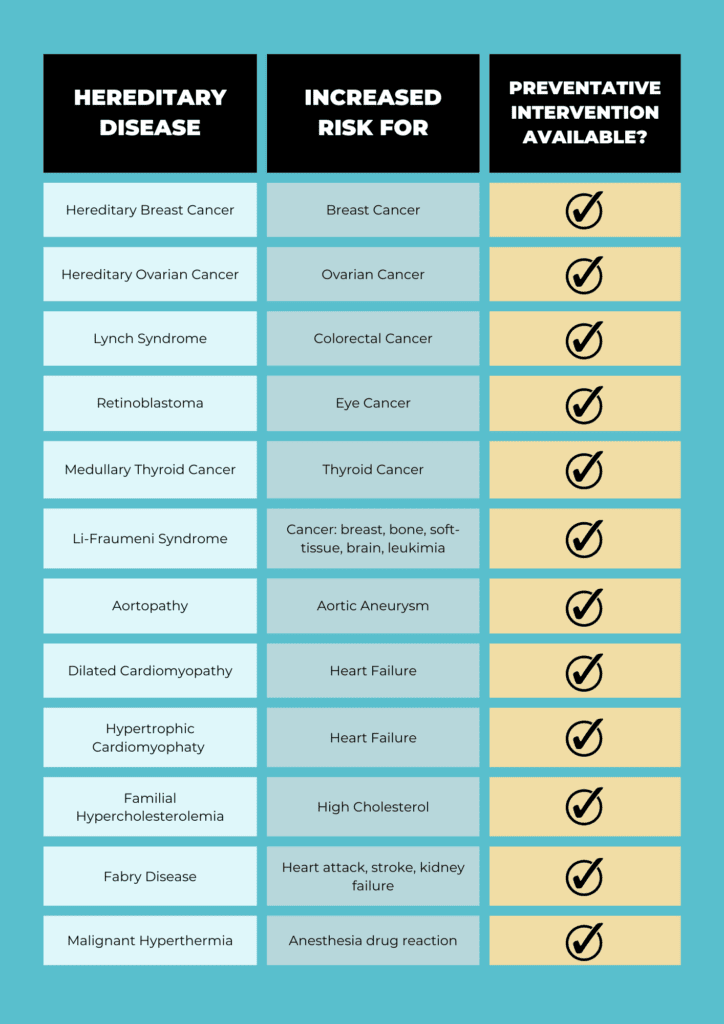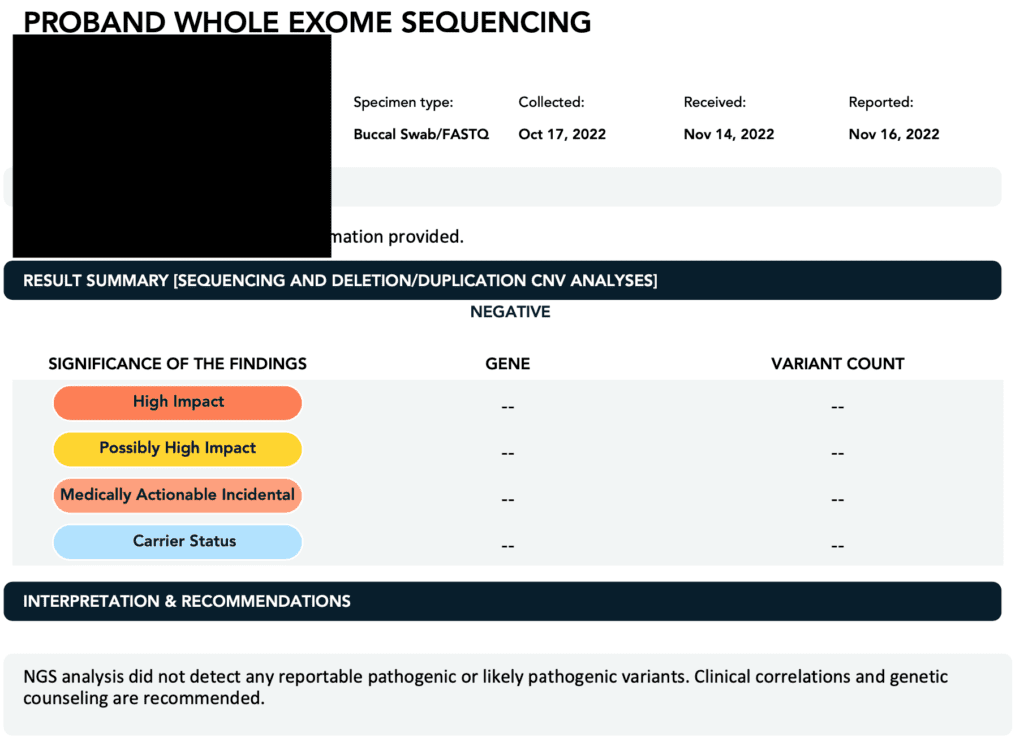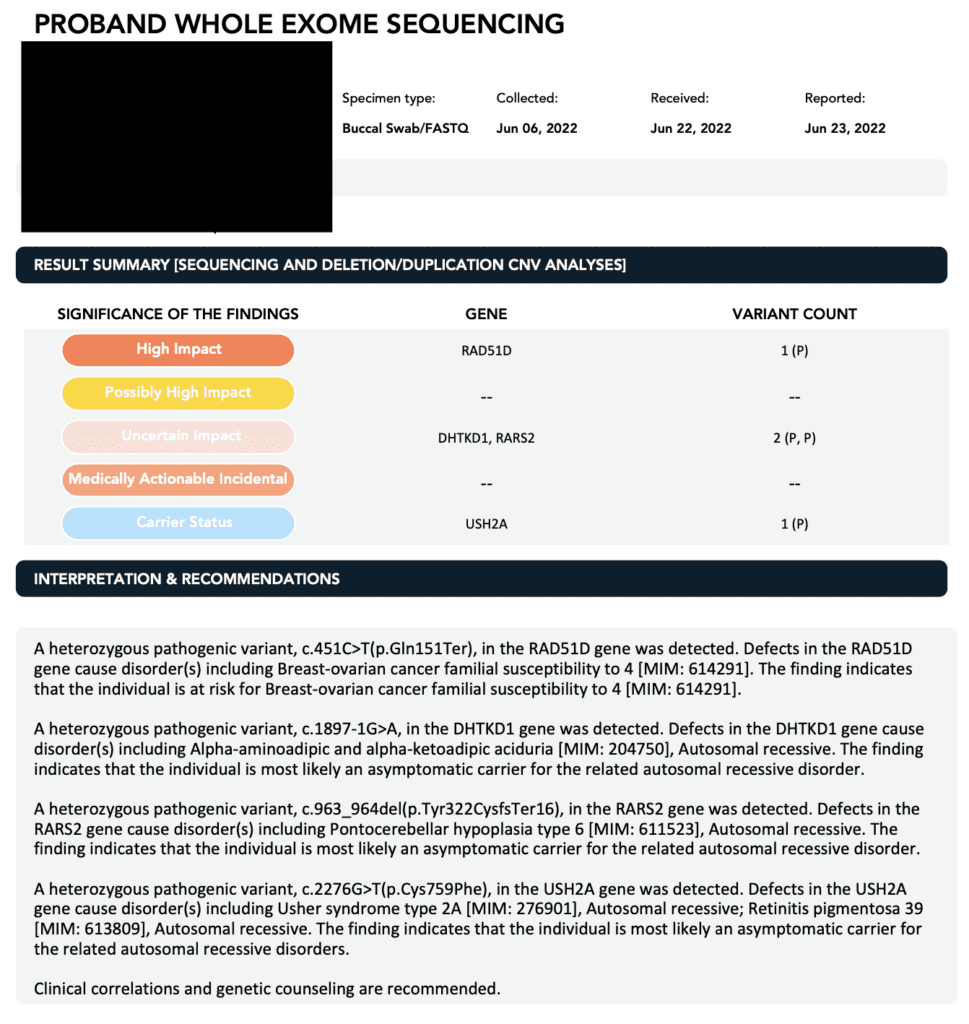
Panacea partners with world-class CLIA and CAP certified genetic laboratories
that adhere strictly to evidence-based science. They follow the guidance and knowledge base of reputable and trusted sources of genomic science like the the American College of Medical Genetics and Genomics (ACMG), the American College of Obstetricians and Gynecologists (ACOG), ClinVar and many others. That means every report reveals only well understood and well studied genetic changes that are known to cause or increase the risk for disease.
This may contain actionable information or gene risks that have medically available interventions so that you can take action and lower your risks. It may also include non-actionable gene risks that have few or no current medical interventions, although this is less common. Explore the chart for a few common and actionable risks identified with Whole Exome Sequencing.
Carrier Genes
Your report will highlight any changes detected in the 15 most common carrier genes (see chart), as recommended by the American College of Obstetricians and Gynecologists.
Carrier genes are genes that “carry” a risk for a specific genetic condition, and that condition doesn’t affect you, but could affect your child if your partner has the same carrier gene.
If you are family planning and are interested in more thorough carrier status analysis, you can request your raw data from us for free. Your raw data contains your full carrier status, but you will need to use third-party software to further analyze it. Promethease* is a reputable software that can analyze raw Exome data for a very low fee.
*Panacea is not affiliated with Promethease in any way.

Report Type: No Variants Detected
The majority of people will have a completely empty report. This is actually the most desirable outcome because this means that no known hereditary disease causing changes have been identified in your exome. This does not mean that you will never develop a problem like cancer or cardiovascular disease. It simply means that you are not at an elevated risk for these conditions compared to the average person. It is important to note that different labs may interpret genetic test results differently, especially for genes that are still not well understood by science.
Our laboratory partners follow the guidance and knowledge base of reputable and trusted sources of genomic science like the American College of Medical Genetics and Genomics (ACMG), the American College of Obstetricians and Gynecologists (ACOG), ClinVar and many others. That means every report reveals only well understood and well studied genetic changes that are known to cause or increase the risk for disease. It is possible for other labs to include more information in their reports that is less validated or with unknown impact. You can always request your raw date for free, which contains all identified changes, including those not clearly understood by current science.

Report Type: Variants Detected
Less than 10% of people will have a report containing one or more potentially disease causing genetic changes. This is extremely valuable information as many genetic changes are actionable- this means that you can take action to prevent or catch some of these potential problems early. This does not mean that you will develop a problem like cancer or cardiovascular disease. It simply means that you are at an elevated risk for these conditions compared to the average person.
It is important to note that different labs may interpret genetic test results differently, especially for genes that are still not well understood by science. Our laboratory partners follow the guidance and knowledge base of reputable and trusted sources of genomic science like the American College of Medical Genetics and Genomics (ACMG), the American College of Obstetricians and Gynecologists (ACOG), ClinVar and many others.
That means every report reveals only well understood and well studied genetic changes that are known to cause or increase the risk for disease. It is possible for other labs to include more information in their reports that is less validated or with unknown impact. You can always request your raw date for free, which contains all identified changes, including those not clearly understood by current science.
